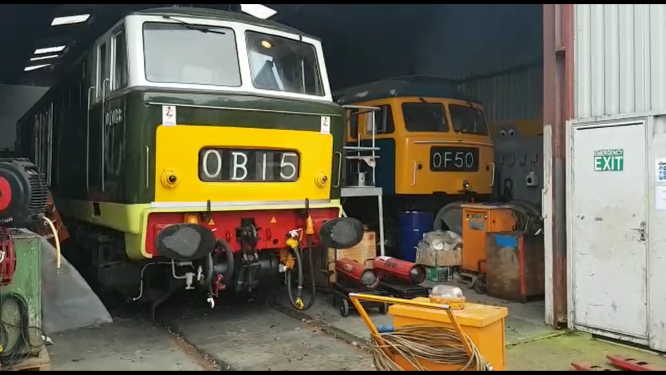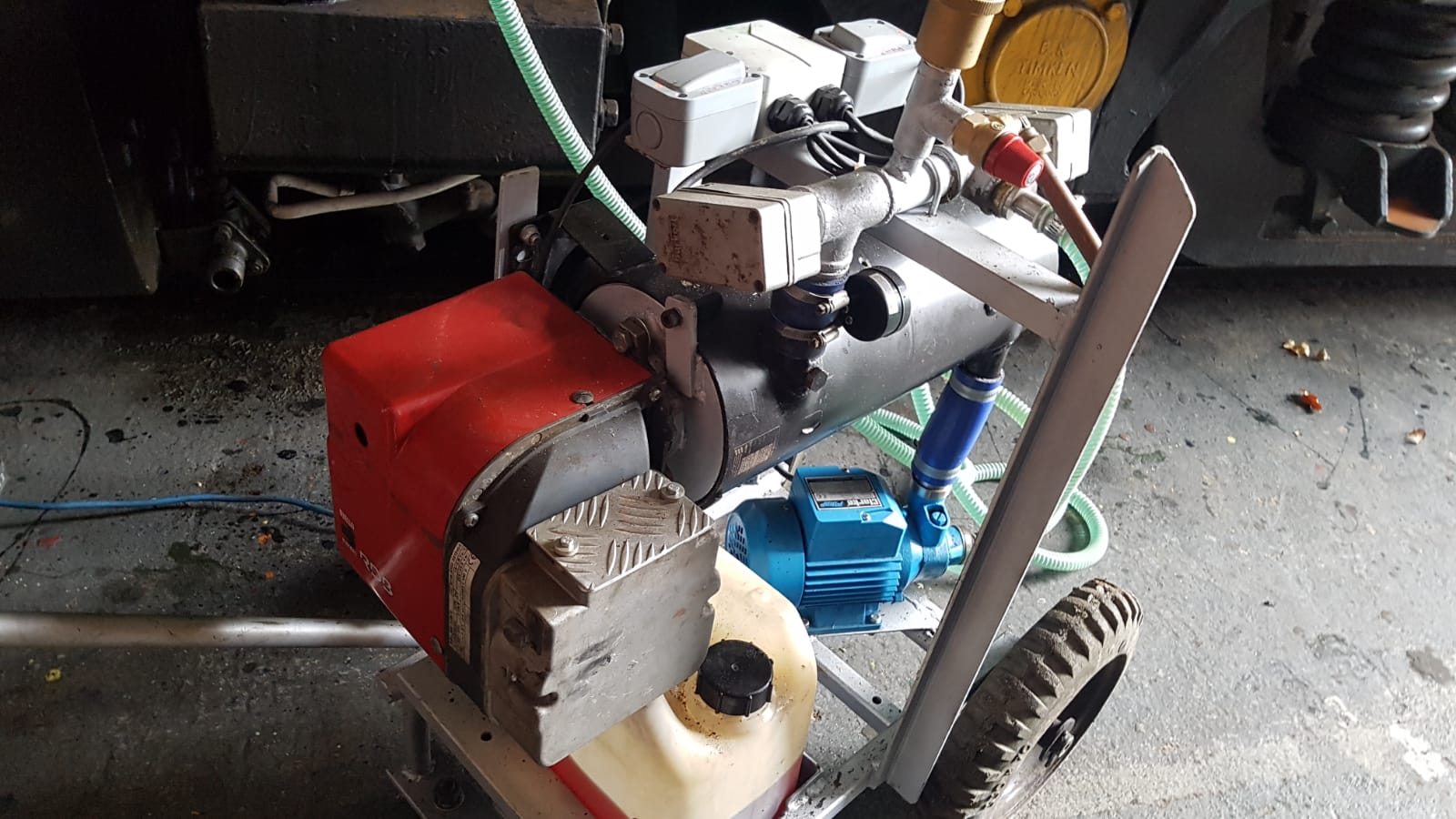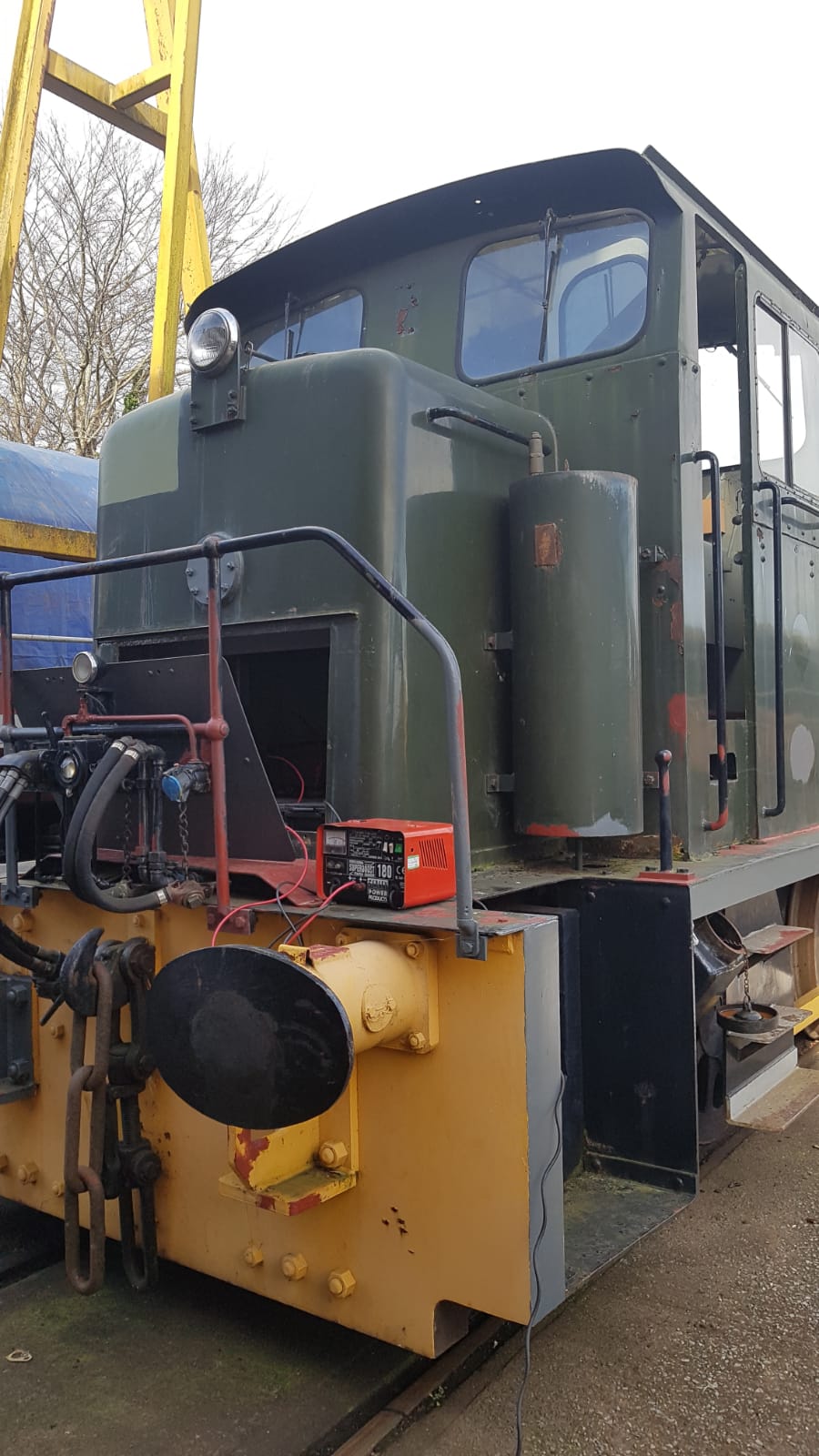This week, we have plenty of news to report because DEPG member and Maybach specialist Bob Clegg and a small team comprising Martin and Neil attended at Williton last Tuesday (23-Feb) to perform checks on the Maybach MD-870 engines that are installed in our ‘Hymeks’. Both locos were started easily and ran nicely, with no issues reported.
Terry also attended to check over our Paxman-engined Class 14 D9526 and this loco was also started up and run for an hour or so, again with no issues reported.
A short video compilation is provided below:

The preparation of D7018 gave an opportunity for the pre-heating to be performed using Bob Clegg’s new portable pre-heater that is connected to the loco using quick-release self-sealing hoses. The portable pre-heater allows us to get the Maybach MD870 engine warmed up to the required temperature for starting, even if the on-board pre-heater has failed. The concept has now been proved to be successful so the pipework for D7017 and D1010 will be modified at some point in future to allow the portable pre-heater to be used on all three locos. This will reduce the risks of on-board pre-heater failure that has been the cause of some locos missing their booked turns in the past.

Pre-heating the engine before starting allows the engine parts to expand to a closer fit, thereby reducing the wear, noise and smoke that would otherwise accompany a cold start. It can take four or more hours of pre-heating to get the coolant up to the required 43°C before the start button becomes live and allows starting to take place. This was not a problem in BR days because locos seldom stood around idle for long enough to cool to below 43°C, but in preservation, we have to take account of this and make sure that the engines are properly looked after. NOTE: HSTs that are fitted with MTU engines also have pre-heaters.
The twin Maybach MD-655 engines of our Class 52 ‘Western’ D1010 ‘WESTERN CAMPAIGNER’ present us with a different set of challenges. The engine at ‘A’ end (currently at the north end of the loco, away from the shed) is serviceable but the cooling system suffers from leaks so the loco was drained prior to the winter as a precaution against frost damage. It will be necessary to stem the leaks and re-fill with coolant before pre-heating can be attempted. The engine at ‘B’ end (currently the south end of the loco, nearest the shed) cannot be started because the transmission has been removed from the loco (the dynastarter drives through the transmission). Both engines need lubricating and turning over by hand and this will be arranged as soon as possible, with a separate working party dedicated to the task. Meanwhile, the batteries have been charged so that there will be the capacity to start up ‘A’ engine when ready.
Also receiving attention to batteries this week was the WSR’s Andrew Barclay 0-4-0 diesel-hydraulic shunter, works number 578, ex-ROF Puriton ‘Number 1’ which these days resides at Williton yard. This loco uses a 48V electrical system and the battery charger is a lot smaller than the 110V types that are used on the mainline locos, so it is a quick and easy task by comparison. The Paxman engine of this loco will be run at the next opportunity.

LOCO NEWS: Other than that reported above, the status of our locos remains unchanged this week, due to lockdown.
Go to previous Depot News page